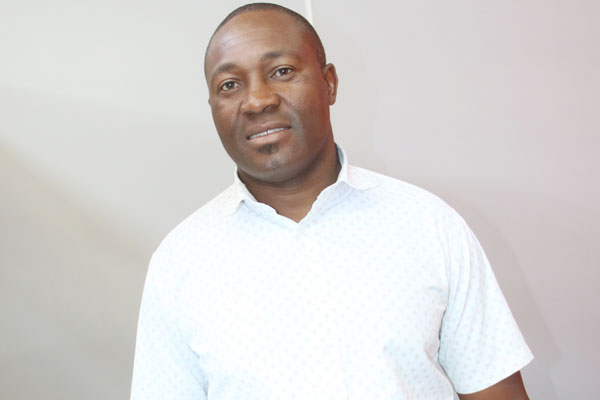
Losson Mtongwiza’s blood is rugby having cemented his place in the sport as a player and administrator.
BY NDAMU SANDU

His passion for the sport has also expanded to business, where he has held forte despite the harsh economic environment.
Mtongwiza exudes resilience, which saw him venturing into business when the economy was on its knees nine years ago.
The adventure into business, he said, was inspired by telecoms mogul and philanthropist Strive Masiyiwa.
“He went into business against all odds. He is an example that business can be done. What one needs is the courage to go out there and put everything in,” Mtongwiza said In 2008, Mtongwiza ventured into a solar project, but it failed to tick. He included automotive batteries retailing as part of his range of the business the same year.
“It [battery business] took over the solar project because we found out that people were struggling to pay for solar kits because of the state of the economy at that time,” he told Standardbusiness last week. The battery business has a staff complement of 20, he said.
“We then moved to consolidate with the batteries and opened various branches. We have four in Harare and one apiece in Gweru and Bulawayo. We supply the leading hardware shops in the country.”
- Chamisa under fire over US$120K donation
- Mavhunga puts DeMbare into Chibuku quarterfinals
- Pension funds bet on Cabora Bassa oilfields
- Councils defy govt fire tender directive
Keep Reading
Raylite Batteries is an agent for South African battery manufacturer, First National Batteries, which has over half of that country’s market share.
On the local front, Chloride enjoys the lion’s share of the market with its Exide brand. This, according to Mtongwiza, is because they produce batteries locally.
He said the forex shortages were making it difficult for companies to operate but his business was soldiering on.
In response to the forex shortages, Mtongwiza is building a $2 5 million battery recycling plant in Harare.
This is in response to government’s call encouraging local manufacturers to reduce dependency on imports.
“It [the plant] will create value in that we feel there are millions of batteries sitting in people’s houses that can be recycled and some of the by-products can be exported,” he said. The new project is expected to employ 30 people.
Monetary authorities have rapped businesses for coming up with a multiple pricing regime but Mtongwiza says that is only way out.
“It’s reality. The banks cannot process payments unless they are given cash,” Mtongwiza said.
“Companies like ours are trying to take money from the informal market to the banks. Giving people incentives is trying to take money into the formal system.”
He said monetary authorities had to come up with measures to attract money into the formal system.
Last year, the central bank came up with a priority list for the efficient management of the scarce foreign currency.
Although raw materials are given first priority, companies have to wait long periods to the shortage of the foreign currency.
Mtongwiza said some of the constraints faced by local businesses included failure by critical stakeholders to walk the talk on the ease of doing business. He said his business was struggling to consolidate its two adjacent stands into one to enable the construction of the country’s second plant for battery recycling because of red tape.
“It should be a given that when we own both stands, consolidation should be an overnight thing but it has taken us a month so far,” he said.
“We are struggling to go to the next level and we are stuck with bottlenecks that can easily be solved.”
Mtongwiza said the Environmental Management Agency wanted to be paid upfront its 1% of the total value of the project.
He has also ventured into chicken farming in Chegutu, a project he started in 2012.
This project has given birth to a chicken butchery in Harare and a fast foods business, Rays Chicken.
The labour-intensive chicken business has steadily grown since 2012 and employs 60 people.
Other than business, his passion is in rugby where he believes he still has something to offer to the sport.
“Rugby is my hobby and I feel not taking the country to the World Cup is a disservice when I have the ideas,” he added.
“The last time I was involved, we won the Africa Cup in 2012, the first time in 20 years,” said the former rugby administrator.
He held positions of vice-president and team manager of the Zimbabwe Rugby Union.











